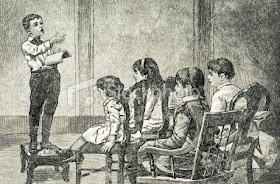
It is 8:00 on the last night of my Panama City vacation and I am sitting on the balcony of our borrowed sixth floor condominium watching the sun set on this day, on my time of rest, perhaps on the pristine beauty of the scene before me, and, hopefully—and with hope is the way that I have slowly come to realize I must think about it—a way of life that is as American as baseball, hot dogs, apple pie and, yes, Chevrolet.
I have been here for five days and I have seen no direct sign of the ruinous oil from the Deepwater Horizon spill that is probably heading this way. I have seen indirect signs, though, including much smaller than expected crowds on the beach and at the restaurants and workers, travelling three to a group, walking up and down the beaches quite nobly, so far as I could tell, trying to keep their eyes off the bikini-clad sun worshippers and on the sand of the beaches onto which the tell-tale tar balls could at any time wash, and not too far to the west of where I sit, have washed, ashore.
News outlets have offered us images—although probably not enough images—of the devastation that is being wrought even farther west down the Florida Panhandle and into Alabama and Louisiana. Only God knows--and maybe the experts, at least those who don’t work for the oil companies, can make fairly educated guesses-- just how much damage this oil spill is going to inflict on the environment and on the economy and for how long that damage is going to be inflicted.
The environmental damage that has already been caused and that is still to take place is uppermost in my mind tonight as I think about the beautiful white sand beach on which I have walked and the gorgeous blue and green water upon which I have gazed and that I can in the darkness hear breaking on the shore below me. My heart breaks as I think about how that could change should—and I hope and pray it does not—the plague of oil that has struck other areas strike this one.
But as I have driven up and down Thomas Drive and Front Beach Road this week I have been struck by the thousands upon thousands of motel rooms and condominiums that line those thoroughfares along with numerous shops and restaurants and it is not hard to imagine, given how the economy of this area that is in danger of being affected by the oil spill is obviously being affected, just how devastated the economies of those areas west of here that have already been affected must be.
How can BP or anyone else possibly adequately compensate all of the businesspeople and their employees whose livelihood has been negatively impacted by this terrible event? How can BP or anyone else make up for what is going to be lost this year and in the years to come?
Meanwhile, back in the place of my daily reality to which I will return tomorrow, the debate over a planned coal-fired power plant to be built out in our county near the Ocmulgee River rages hot and heavy. I am no more an expert on coal-fired power plants than I am on deep-water oil rigs but it doesn’t take an expert, it seems to me, to realize a few things, and one of those things is that it is way past time for somebody to take the lead in planning, adopting and implementing an energy policy that will move not only the United States but the world away from our addiction to fossil fuels and toward the use of renewable energy sources.
I would like to think that the United States could take the lead in showing the world the way and I would furthermore like to think that Christians in America could take the lead in encouraging our elected leaders and our industrial captains and our scientists and anybody else who could help to get us moving in the direction of sustainable and renewable energy use to do what has to be done to get us there.
Again, I’m no expert, but I have read experts who insist that, while it would require a mobilization and retooling effort on the scale of fighting a world war, such a transition could be successfully navigated if we have the will to do it.
Why should Christians care? I can think of several reasons.
First, Christians should care about peace and the dependence of nations on oil is the cause of much geo-political instability and will in the future be the cause of even more conflict.
Second, Christians should care about the well-being of people and the human cost of obtaining fossil fuels for our consumption is high.
Third, Christians should care about the earth that God in God’s grace has given us as a home and the damage done to our home in the process of securing fossil fuels is severe.
The experts I have read say that the way forward is found in solar, wind, and wave power. Again, they say that the way forward is difficult and that tremendous will and effort will be required to make it happen.
As a Christian, as a human being, as a citizen of the United States, and as a resident of the Earth, I believe that we need to begin now to move toward national and then world-wide dependence on renewable energy sources and away from a dependence on fossil fuels.
I know it will be hard and tough and challenging and demanding and controversial.
Keeping pretty beaches and pretty water pretty is reason enough to take on the challenge.
But there are even better--and much more substantive--reasons.
So let us begin.


